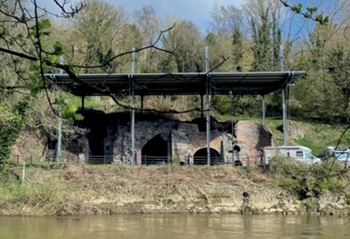Pre-tender interview
When selecting suppliers to design, construct and perhaps operate a development, an initial short-list of prospective tenders may be invited to attend pre-tender interviews before they are invited to tender.
A pre-tender interview is an opportunity to:
- Assess the tenderers understanding of the commission.
- Assess the tenderers likely approach to the project.
- Assess the tenderers current workload.
- Assess the tenderers enthusiasm.
- Clarify ambiguities on either side.
- Verify that the proposed timescale for the tender process is achievable.
- Verify that the proposed nature of the tender process will obtain the best results.
Price does not feature in the pre-tender interviews as tender documents have yet to be issued.
Discussions held during the interviews may result in changes being made to the tender documents or to the length of the tender period. It can be in the interest of the client to make these changes as it ensures that they get the best value and most accurate tenders possible.
Interviews may include presentations by prospective tenderers, followed by questions from a small panel. The panel should agree in advance the nature of questions to be asked of each consultant (perhaps based on an assessment of their pre-qualification questionnaires). Answers may be scored and weighted, and sufficient time allowed between interviews for scores to be compiled and considered. This allows an objective appraisal to take place and also allows a consensus opinion to be formed, rather than having decisions driven by a single person.
Pre-tender interviews should be carefully managed so that tenderers are not made aware of who the other tenderers are, as this may impact on the competitiveness of the tenders they submit. This may include arrangements in relation to timing, car parking, waiting rooms and signing in books as well as the removal of any materials left by at the interviews by tenderers.
If the pre-tender interviews reveal that one or more prospective candidates are unsuitable, the initial shortlist may be reduced and the remaining candidates invited to tender.
It may also be appropriate to hold mid-tender interviews.
[edit] Related articles on Designing Buildings Wiki
- Best value.
- Construction contract.
- Contract documents.
- How to prepare tender documents.
- Mid-tender interviews.
- Pre-qualification questionnaire.
- Procurement route.
- Tender.
- Tender documents
- Tender negotiations.
- Tender settlement meeting.
[edit] External references
- PACE Guidance on the Appointment of Contractors and Consultants p 481 (for contractors) and p303 (for consultants).
- OGC Tendering process for consultancy support.
Featured articles and news
The act of preservation may sometimes be futile.
Twas the site before Christmas...
A rhyme for the industry and a thankyou to our supporters.
Plumbing and heating systems in schools
New apprentice pay rates coming into effect in the new year
Addressing the impact of recent national minimum wage changes.
EBSSA support for the new industry competence structure
The Engineering and Building Services Skills Authority, in working group 2.
Notes from BSRIA Sustainable Futures briefing
From carbon down to the all important customer: Redefining Retrofit for Net Zero Living.
Principal Designer: A New Opportunity for Architects
ACA launches a Principal Designer Register for architects.
A new government plan for housing and nature recovery
Exploring a new housing and infrastructure nature recovery framework.
Leveraging technology to enhance prospects for students
A case study on the significance of the Autodesk Revit certification.
Fundamental Review of Building Regulations Guidance
Announced during commons debate on the Grenfell Inquiry Phase 2 report.
CIAT responds to the updated National Planning Policy Framework
With key changes in the revised NPPF outlined.
Councils and communities highlighted for delivery of common-sense housing in planning overhaul
As government follows up with mandatory housing targets.


















